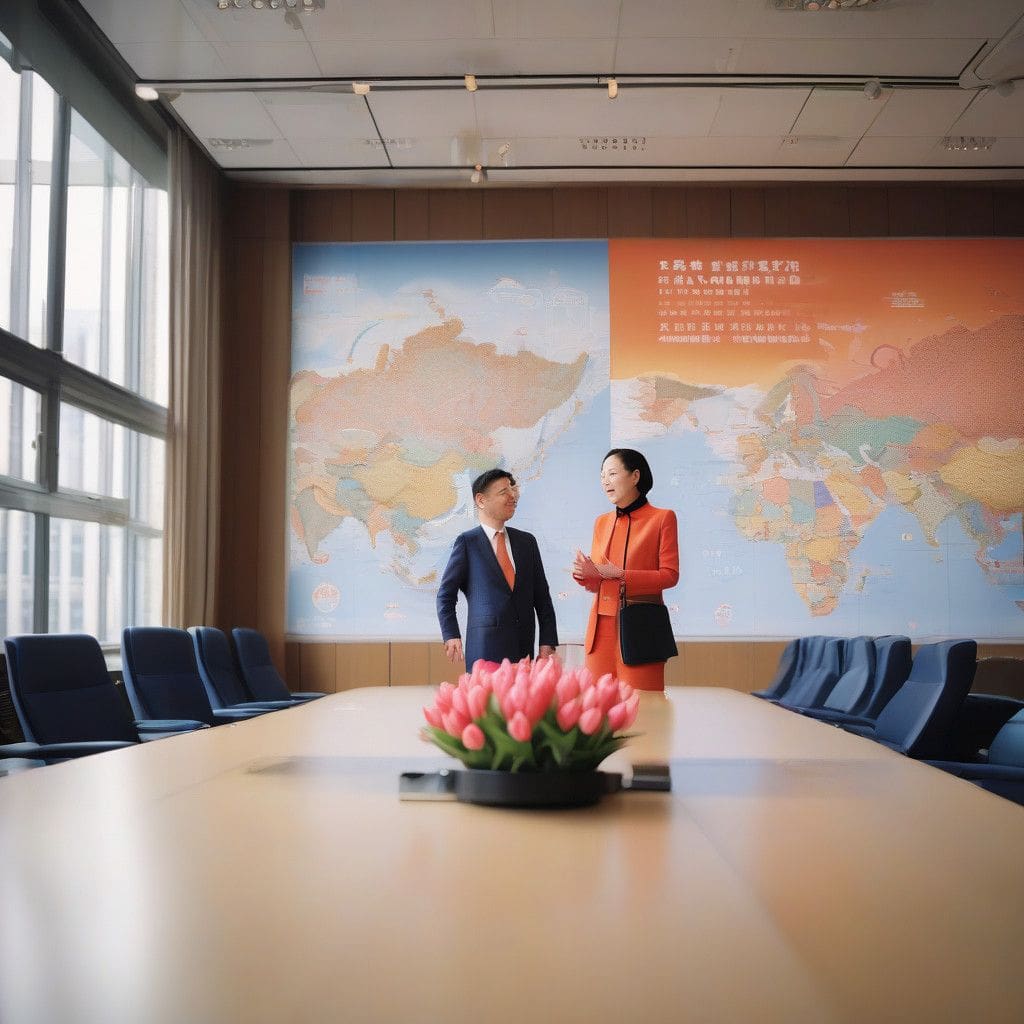During a recent trip to Washington, Netherlands’ Economy Minister Dirk Beljaarts highlighted the importance of China as a key trading partner. This discussion came at a time when the semiconductor industry is under scrutiny, particularly with regard to export restrictions imposed by the U.S. government. Beljaarts underscored the necessity for ASML, a prominent semiconductor equipment manufacturer and one of the Netherlands’ most valuable firms, to function freely and maintain strong operational ties with its Chinese customers.
Beljaarts met with U.S. Deputy Secretary of Commerce Don Graves to advocate for enhanced bilateral trade. Crucially, their dialogue did not focus on the growing restrictions that the U.S. is executing, as Beljaarts clarified that these policies are not within his governance. Instead, the minister’s stance reflects a proactive approach toward fostering economic relations that benefit both countries.
This engagement unfolds amid increasing tensions and stricter U.S. export regulations tailored to semiconductor technology intended for Chinese companies. Many industry insiders are concerned about how these regulations may constrain the capabilities of ASML, which is regarded as a cornerstone of the semiconductor supply chain vital to technological advancements.
ASML’s recent update indicated that they would comply with new export licensing requirements imposed by the Dutch government, which were largely influenced by U.S. sentiments. However, it is essential to note that ASML’s main markets lie within Taiwan, China, and South Korea, indicating why it is essential for the company to be able to navigate these challenges with sufficient leverage.
In his discussions, Beljaarts emphasized the significance of maintaining balanced trade relationships. He stressed that the Netherlands has a pressing economic need to keep trade channels open, stating: “We have our economy to uphold.” This assertion underscores the interconnectedness of global supply chains, where countries like the Netherlands depend significantly on their ability to trade freely with China for sustaining economic stability and growth.
Moreover, ASML has become an integral part of the global semiconductor ecosystem. The technology it provides plays a crucial role in the manufacturing processes of chips that power everything from smartphones to sophisticated computing systems. The Dutch Minister’s remarks resonate with many industry leaders who have also advocated for a more open trade policy concerning the semiconductor sector.
To highlight the importance of ASML in this context, consider the company’s position in the broader market. ASML is the sole supplier of extreme ultraviolet (EUV) lithography machines, which are essential for creating advanced semiconductor chips. Such technology is particularly vital for retaining competitiveness in a landscape dominated by key players like Taiwan’s TSMC and South Korea’s Samsung. If ASML’s ability to operate in China is hindered by export restrictions, it would not only affect the company’s bottom line but also slow down innovation across the entire tech industry.
In light of these conditions, the Dutch government’s inclination towards promoting free trade and dialogue is noteworthy. Beyond discussions of policy, it is apparent that fostering a productive relationship between nations enhances mutual economic benefits. The intent behind Beljaarts’ visit signals a commitment to avoiding a trade stalemate that could occur if countries resort to heavy-handed restrictions, potentially leading to retaliatory measures and diminished market access for Dutch companies.
Furthermore, this advocacy for free trade with China is aligned with global trends where countries are increasingly recognizing the value of engagement over isolation. Countries that opt for better trade relations tend to benefit more from economic growth, technological advancement, and enhanced diplomatic ties.
In conclusion, Beljaarts’ stance underscores a critical moment for the Dutch economy amidst a backdrop of trade complexities. His commitment to advocating for ASML and promoting free trade with China reflects a strategic vision for stabilizing and enhancing the Netherlands’ economic prosperity. With turbulence in global trade policies, countries must navigate these waters with a clear understanding of the economic imperatives that shape their practices.










